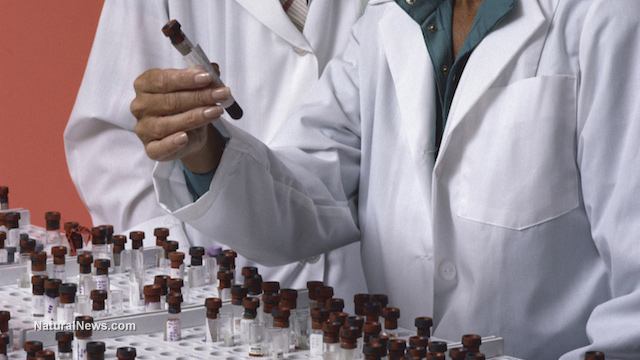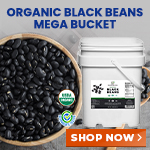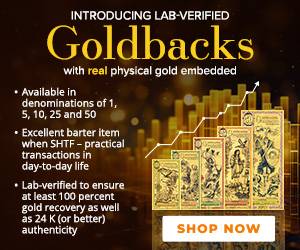Scientists feverishly working to develop artificial meat as biotech industry's next big product
Thursday, November 05, 2015 by: Jennifer Lea Reynolds
Tags: artificial meat, lab-created hamburgers, pseudo foods

- Newly released JFK files reveal Pentagon's role in creating Lyme disease and covid in the same lab
- Kiss Your Genetic Privacy Good-Bye! 23andMe Gets Green Light to Sell Your Intimate Genetic Details to Anyone They Want
- Sugar-free deception: Artificial sweeteners hijack hunger signals, fuel obesity epidemic, study warns
- Woman contracts WORLD'S DEADLIEST VIRUS after unknowingly being given the WRONG VACCINE
- Sweden's migrant crisis deepens as failed green energy venture leaves thousands jobless, exposes systemic collapse
- A handful of pecans a day could keep heart disease at bay, study finds
- Is the vaccine-autism debate reopening? Washington Post sparks controversy with preemptive hit piece on David Geier
- RFK Jr. slashes HHS bureaucracy, saves taxpayers $1.8B while refocusing on chronic disease epidemic
- Challenging the status quo: “America Fooled” by Timothy Scott exposes the myths about antidepressants
- Pediatric dentist exposes fluoride dangers as more states ban toxic water additive
- Advisory: Ex-FBI agent exposes likely ATF honeypot operation selling illegal Glock switches
- The case for locking up the Deep State's biggest hatchet man...
- Could camel milk be a game-changer for autism? Science says it’s worth exploring
- Revolutionize your diet with pomegranate: The miracle juice for gut health and metabolism
- AI weather model outperforms traditional forecasts, boosts accuracy by 20%
- Cauliflower: From ancient crop to modern superfood
- North Carolina Supreme Court rules family can sue over COVID-19 force-vaccination of teen without parental consent
- Israel’s Gaza offensive claims over 100 Palestinian lives daily, rights monitor reports
- Newly released JFK files reveal Pentagon's role in creating Lyme disease and covid in the same lab
- Analysis: The coming economic collapse, a mass uprising and Trump's three secret weapons to halt the growing revolt
- Trump nominates VACCINE ZEALOT Susan Monarez to lead the CDC, sidelining RFK Jr.'s reform efforts
- Trump's greatest betrayal so far: Accelerating Middle East wars, silencing dissent, and serving Zionist masters
- CDC finally halts $11 billion COVID funding scam as health officials admit the ‘pandemic’ was a fraud
- The hidden dangers in your kitchen: How cooking methods impact diabetes, cancer and aging
- BEWARE: USDA allows genetically engineered vaccines to infiltrate organic food production
- Obama accused of laundering USAID funds to fuel global protest movements, regime change operations
- DEADLY DECEPTION: How COVID vaccines increased mortality rates and why authorities hid the truth
- Here are TEN all-natural ways to protect your garden without using harmful chemicals
- Dr. Mike Yeadon releases 15-minute testimony - WATCH - about genocidal intent of COVID “vaccines”
- Festive flavors: The sweet history, nutritional profile and health benefits of pecan pie
- Big Pharma's media takeover: How drug companies bought the news - and your health
- Dr. Suzanne Humphries makes bombshell appearance on Joe Rogan podcast, exposing vaccine industry deception back to POLIOMYELITIS
- Elon Musk: Aliens could be here on Earth RIGHT NOW
- 5 Simple steps to boost your brainpower: How to strengthen executive function in a distracted world
- Trump reverses course on Gaza plan, says “nobody is expelling Palestinians”
- California's social media censorship law struck down: A victory for free speech or a threat to online safety?
- Newly released JFK files reveal Pentagon's role in creating Lyme disease and covid in the same lab
- EPA advisor admits the agency is funneling billions to climate groups ahead of Trump’s return to White House
- California's social media censorship law struck down: A victory for free speech or a threat to online safety?
- Dr. Mike Yeadon releases 15-minute testimony - WATCH - about genocidal intent of COVID “vaccines”
- The Health Ranger releases “Vaccine Zombie” song and music video, using AI-animated zombies for the music video
- Florida takes a stand: DeSantis proposes permanent ban on mRNA vaccine mandates
- The pandemic as a tool for INDOCTRINATION: Understanding “The Indoctrinated Brain” by Dr. Michael Nehls
- “Why we influenced the 2020 elections”: Facebook files reveal the coordinated effort to bury the Hunter Biden laptop story
- Mike Adams releases country western hit single: Goin’ Back in Time is Comin’ Home
- Mike Adams releases music poetry sensation: A Child of God
- Unpacking the Lies That We’ve Been Fed – new song and music video released by Mike Adams, the Health Ranger
- Michigan sheriff announces criminal investigation into 2020 election crimes, Dominion Voting Systems
- Migrants are taking advantage of recent hurricanes to scam residents and loot their homes
- House Intelligence Committee calls for the ARREST and PROSECUTION of Dr. Anthony Fauci
- Rep. Nancy Mace introduces bill to ban biological males from female facilities on federal property
- Peter Rost exposes Big Pharma corruption in his book “The Whistleblower: Confessions of a Healthcare Hitman”
- Former horse rancher and 6,000 other plaintiffs are suing Syngenta after paraquat exposure led to Parkinson's Disease
- Mike Adams releases new song and music video: Nothing More Disgusting Than a Globalist
- Red Cross issues warning to stop blood plasma donations from vaccinated people
- Scientists confirm: GENIUS brain function can be spontaneously unleashed in humans without any apparent cause
- EPA advisor admits the agency is funneling billions to climate groups ahead of Trump’s return to White House
- HYSSOP: What research reveals about the health benefits of this ancient holy herb
- Two containers with completed ballots fall out of truck in Florida
- Fully vaccinated about to see “tsunami” of illness and death, warns virologist
- Global leaders unite to clamp down on “misinformation” with UN-backed Cascais Declaration
- BREAKING: 2025 NDAA authorizes mandatory military draft of WOMEN across America… as Pentagon pursues global NUCLEAR war with both Russia and China at the same time
- Michael Yon warns of a ZIONIST TAKEOVER in Trump’s second administration
- BOMBSHELL: DNA testing kits are a SCAM to develop ethnic-specific bioweapons
- Ozempic and Wegovy weight loss drugs are injectable LIZARD VENOM PEPTIDES that may unleash a devastating wave of organ failure… side effects align with symptoms of SNAKE BITES
- Israeli soldiers accused of even more torture and abuse in the West Bank
- These 13 countries just signed an agreement to engineer a global FAMINE by destroying food supply
- NASA admits that climate change occurs because of changes in Earth’s solar orbit, and NOT because of SUVs and fossil fuels
- RFK Jr. clears key hurdle: Sen. Susan Collins backs controversial HHS nominee, signaling a new era for health policy
- Sermon 30: How Jesus reveals Caesar’s FAKE CURRENCY and FALSE AUTHORITY
- Coriander seeds: Ancient medicine backed by modern science
- Arizona officials claim Maricopa County needs 10-13 days to tabulate results of the election
Professor Mark Post of Maastricht University in the Netherlands is the man responsible for creating a lab-grown hamburger using stem cells from cows. In a video housed on BBC.com, he takes viewers through a brief tour of the lab where such substances are created, showing an elaborate shelving system where billions of cow stem cells are housed while explaining that such a process is an "inevitable" way of life.
In that same video, he explains that small muscle tissues are created from the cow's stem cells. These muscle tissues are ultimately assembled together, piece by small piece, to create an entire hamburger.
Mmmm... nothing quite gets the salivary glands flowing than thought of chomping into a lab-created hamburger made inside a sterile lab environment by gloved humans.
Professor: lab-grown burgers not a crazy idea, "inevitable" for world's future
"People might think this is a sort of crazy way to produce meat," Post says in the video, "but it's inevitable because the way we produce meat right now through livestock is not sustainable, it's not good for the environment, it's not good for animals and we actually are not going to produce enough to meet the world's demands. So this is one of the alternatives...""I am confident that we will have it on the market in five years," he said. He explained its appearance in supermarkets is heavily contingent on increases in its demand and more affordable pricing; after all, a prototype of the burger made and cooked in London two years ago cost approximately $332,000 (£215,000). Furthermore, its taste is in need of improvement, which is something that the researchers are also working on. During the prototype tasting, some food experts noted that it was "close to meat, but not that juicy," although another individual said it tasted real.
While the research team's efforts are interesting and certainly show an attempt to address sustainability issues, why not take action now by engaging in efforts that can have an immediate impact? It certainly beats waiting for an option that's not really desirable anyway and might not make its way to store shelves until five long years from now.
How to eat healthy and engage in sustainability efforts without relying on Franken-burgers
For example, why not consider going meatless altogether or gradually weaning yourself from such a way of eating? That will resolve the greenhouse gas emissions, animal treatment and land use issues Post refers to without the need for any pricey burgers-from-a-tube lab creations. In fact, many social media initiatives exist to help others refrain from eating meat while providing tasty recipe substitutions; Twitter's #MeatlessMonday is one such option worth exploring for meatless ideas and other tips. Of course, the NaturalNews site is filled with meatless alternatives, including this easy and tasty taco recipe.Even better, ordering Mike Adams' Food Rising Mini-Farm Grow Boxes is an excellent idea because they not only bring fresh foods to your table, but they help you do your part in sustainability efforts. Adams explains that the boxes actually grow food without the use of electricity, help people become self-reliant and provide them with healthy fruit and vegetable choices. It sure sounds better than sinking your teeth into a Franken-burger, right? Read more about these ingenious boxes on FoodRising.org.
Sources for this article include:
BBC.com
NaturalNews.com
Artificial meat at FETCH.news
Get independent news alerts on natural cures, food lab tests, cannabis medicine, science, robotics, drones, privacy and more.
Take Action: Support Natural News by linking to this article from your website
Permalink to this article:
Embed article link: (copy HTML code below):
Reprinting this article:
Non-commercial use OK, cite NaturalNews.com with clickable link.
Follow Natural News on Facebook, Twitter, Google Plus, and Pinterest
Science News & Studies
Medicine News and Information
Food News & Studies
Health News & Studies
Herbs News & Information
Pollution News & Studies
Cancer News & Studies
Climate News & Studies
Survival News & Information
Gear News & Information
News covering technology, stocks, hackers, and more



"Big Tech and mainstream media are constantly trying to silence the independent voices that dare to bring you the truth about toxic food ingredients, dangerous medications and the failed, fraudulent science of the profit-driven medical establishment.
Email is one of the best ways to make sure you stay informed, without the censorship of the tech giants (Google, Apple, Facebook, Twitter, YouTube, etc.). Stay informed and you'll even likely learn information that may help save your own life."
–The Health Ranger, Mike Adams













































